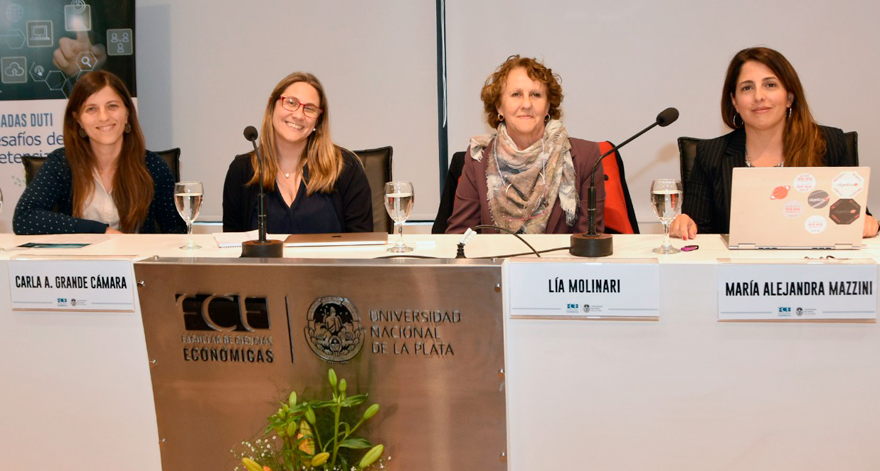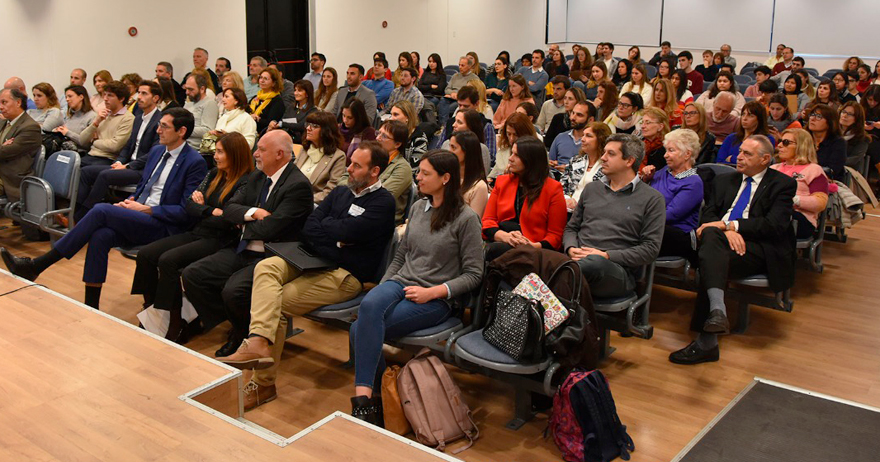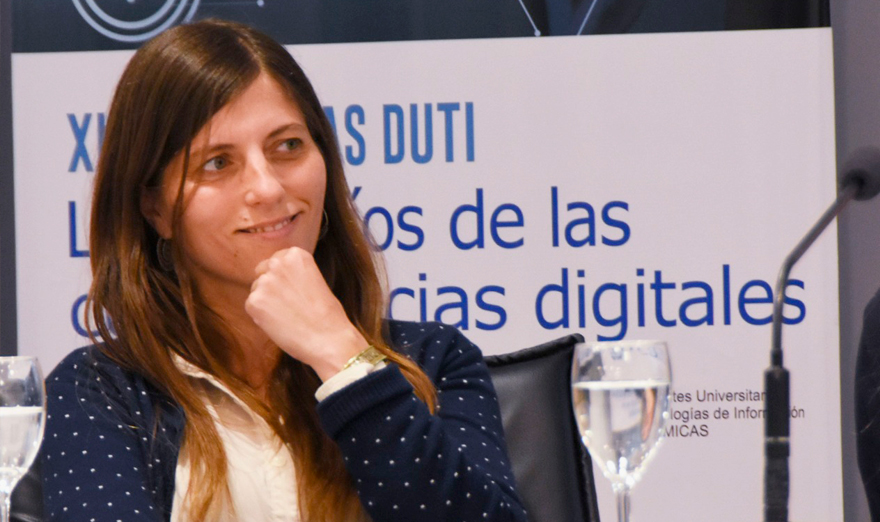Alfonsina Chesini presented her talk “Women in IT”.
In this meeting, organized by the Association of University Teachers of Systems and Information Technology in Economics (Asociación de Docentes Universitarios de Sistemas y Tecnologías de Información en Ciencias Económicas, DUTI in Spanish), Alfonsina Chesini, Flux IT CEO, was invited to reflect on the current industry challenges in promoting the professional development of women.

The talk was part of the series “Women in Tech”, that opened the conference, and included the participation of Carla Grande Cámara, Core Systems Manager in Systems Development at Banco Galicia, Lía Molinari, Director of Human Rights and Gender at the School of Computer Science (UNLP), and María Alejandra Mazzini, Director of Sistran Consultores. During their exposition, Alfonsina shared current data on the gender gap in the IT sector, and talked about how Flux IT is working to break gender stereotypes.

The software and computer services sector has shown sustained annual growth in recent years, exporting more than 40% of what it produces, there is a high demand for professionals that remains unsatisfied, and has a notable imbalance regarding the participation of women, who represent 16% of the productive workforce. To close the gap, there are organizations that are actively working on job placement for women in the short term, others that aim to increase the numbers of enrollees in programs related to science and technology, and a third group aiming to increase young girls’ interest in programming and promoting scientific thought by breaking stereotypes.

“At Flux IT we designed the workshop ‘In terms of gender’ (‘En clave de género’, in Spanish), a space where we look to be able to reflect, challenging our preconceived ideas, breaking molds, and questioning what we consume, think, relations that we make, and stereotypes.”
To close, Alfonsina invited the attendees to work on deconstructing gender stereotypes from childhood, and help reduce the gender gap by challenging their own preconceived ideas.